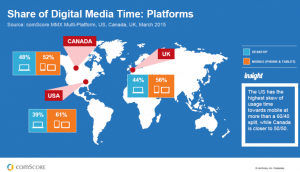Recent surveys show that traditional approaches to performance management – the process of annual rankings and reviews are not achieving their goals. Higher performance or increased employee engagement don’t happen as a result of Performance Reviews. The opposite may even be the case. Even Accenture, one of the largest global companies, told the Washington Post that it is replacing its annual performance review of rankings and an evaluation process with smoother system, whereby managers will give employees timely feedback on a consistent basis following assignments.
This is the complete opposite of traditional performance management that swore by rating all employees on a bell curve to optimize organizational management. So what is piloting this new thinking and drastic departure from tradition? Also, what lies beyond the horizon of Performance Management as we know it?
Why ditch performance management?
Other world-leading companies are making similar changes to those made by accenture. While not all are scratching Performance Management systems completely, some — including Deloitte — are piloting new ones. According to a public survey, Deloitte found that they needed a system that was nimbler, in real-time, and more personalized. Something firmly focused on powering performance in the future rather than evaluating it in the past. The company stated that they have designed a much simpler model for managing employees’ performance characterized in chief by speed, one-size-fits-one, not all, continuous learning, and a new way of gathering reliable performance information.
There are 4 main reasons to replace these systems:
- Year-end assessments and consensus-building processes of how employees rank against each other is a process that takes a massive amount of hours a year.
- Rating skills are largely based on a rater’s perceptions rather than on actual performance, hence performance management outcomes reflect little truth.
- Traditional performance management systems did not focus on employees’ strengths and what made the best teams work well — usually intrinsic motivation.
- Most performance management systems focused on the past instead of providing a direction for the future.
The future of performance management
Many companies moving away from traditional performance management have expressed a need to get rid of forced rankings (aka “rank and yank”) and to provide feedback in real-time. The Global Assessment Trends Report by The Corporate Executive Board Company (CEB) shows that only 6% of Fortune 500 companies have done away with rankings — once considered as a best practice for human resource management, and are therefore “equipped to shift from survival to growth mode.” According to the report, “firms today are purportedly focusing on internal employee initiatives to engage, retain, and develop top talent to propel organizational growth, but lack mature and formal processes for core HR areas such as succession planning, leadership development, and workforce planning, thereby compromising performance and productivity in 94 percent of companies globally.” In short, “for some companies, (September 08, 2015)’s talent practices are jeopardizing tomorrow’s growth opportunities” and “rapid intervention is needed to strengthen the rigor of current talent practices if HR is to help build the foundations for corporate growth through talent development and acquisition.”
The following 6 ingredients are essential for the future:
- Well-timed feedback:
Feedback needs to be timely enough to let employees have another go at what they are doing, instead of looking back and regretting the past. Gamification guru Mario Herger once said the beauty of gamification is that one can fail, get up and do it again. Just as in a real game where you lose lives repeatedly until you discover a certain level, timely and valuable feedback lets an employee correct their actions. Gamification gives one that instant feedback on how you are progressing based on your actions in enterprise applications.
- Objective, transparent and fair
It is imperative that performance management be perceived by employees as objective, transparent and fair. Taking the example of gamification, a system should rate everyone equally and by the same parameters to avoid the pitfalls of causing anguish and dis-engagement that goes hand-in-hand with a sense of injustice.
- Visibility
Employees need a sense that there is a link between the requirements of the organization and what is expected from them as far as performance is concerned. Letting them in on how it all fits together is where companies like BetterWorks are altering PM and where, by conveying company goals, gamification is confronting one of the faults of old-fashioned PM.
- No rankings
It is extremely demotivating for employees to be labeled by rank and in fact launches a “fight or flight” knee-jerk reaction. It is also very discouraging for an employee who has tried his or her utmost to perform, but a forced ranking system places them 4 out of 5 of if they have achieved level 2 in the past and suddenly find they have dropped to level 4. Instead of focusing on performance, accomplishments and intrinsic drives, it forcefully highlights that of other employees generating a sense of rivalry. This also results in a defensive employee who is likely to ignore feedback, thus negating the performance review process. More on the topic can be found in our article on how to fix sales gamification leaderboard mistakes and on Completion vs Competition.
- Focus on growth
An article titled Kill Your Performance Ratings, explains that for many employees, number-based rating systems are deemed as negative feedback — and even those who are pro-growth, don’t react well to it. This ranking — of talent and intelligence as opposed to personal growth, causes employees to become hostile to the PM process itself.
- Future focused
Accenture underlined the need to move away from a PM system that gives feedback about the past to one focused on the future, short-term goals, and feedback cycles that are quicker and ongoing. Since the core of gamification is to enable people to grow and not force them to focus on the past and on competitions, it is set to replace PM in the future. Gamification and other new technologies will succeed, because they are designed with empathy to make employees feel better and help them find meaning, satisfaction and a sense of autonomy and control from the entire performance review procedure.
Business & Finance Articles on Business 2 Community(132)
Report Post





